READY TO GET STARTED?
REQUEST A FREE ESTIMATE
Fill out the form below or call (888) 466-7849 for a free, no-obligation estimate.
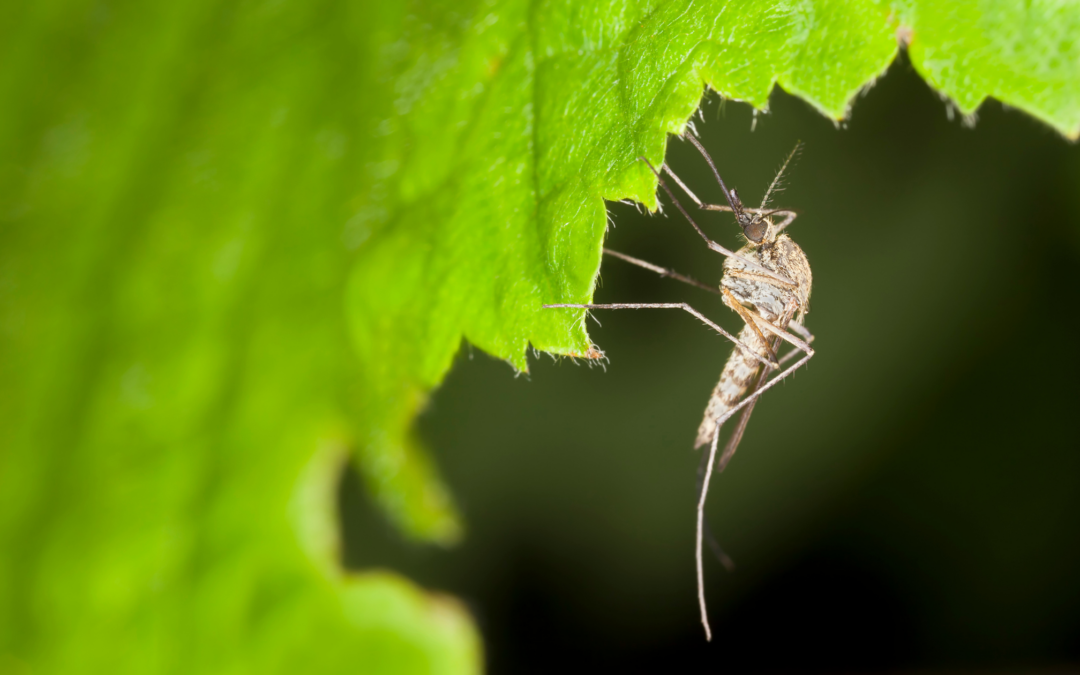
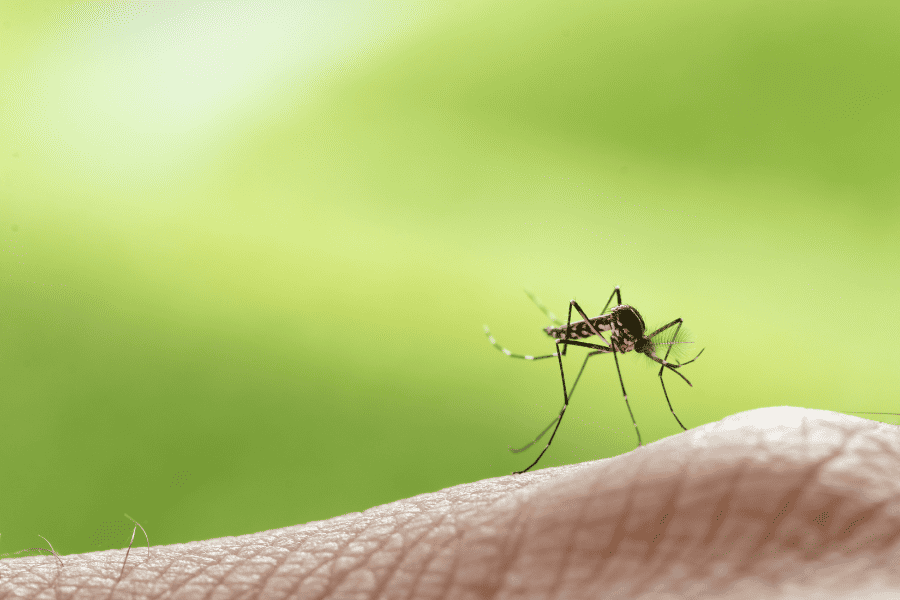
Florida’s tropical weather creates a thriving mosquito environment, often dealing with these nuisance pests year-round. Once mosquitoes invade your yard, they can ruin all your outdoor fun and even transmit diseases, including the West Nile and Zika viruses. One of the best ways you can avoid mosquitoes is creating a less-attractive environment. We breakdown our top 3 mosquito prevention tips you can use throughout your property so you can enjoy your yard again!
To survive and breed more larva mosquitoes, these pests need the smallest amount of standing water. It’s crucial to remove all standing water from your property, especially after a thunderstorm. Consider the following tips to reduce moisture on your property:
Your yard line is the first defense in avoiding mosquitoes so it’s crucial to maintain it on a regular basis; consider these tips on keeping a tidy yard:
Do-it-yourself mosquito prevention will always help efforts in avoiding a mosquito infestation but sometimes it’s best to call a professional mosquito control company for help. These experts will be able to provide you with a mosquito control plan, which typically include:
If you have a problem with mosquitoes or would like to start mosquito prevention now, call your Florida pest control company today!
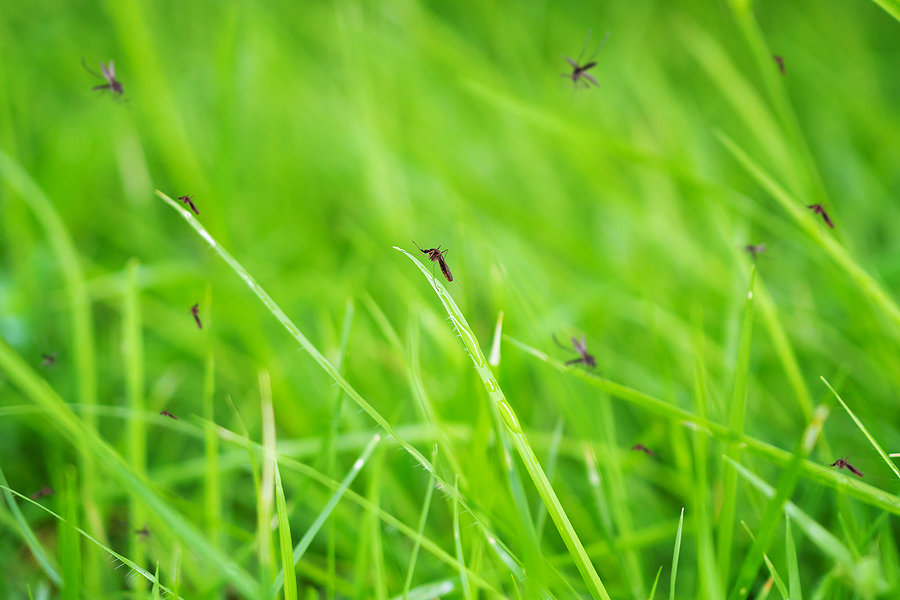
It’s safe to say that all Florida homeowners dread the arrival of mosquito season! It’s inevitable to run into these insects but that doesn’t mean they have to take over your yard. We breakdown common DIY mosquito control tips you can utilize in your yard!
To survive and breed, mosquitoes only need a small amount of water and will look to your yard for it. One of the best ways to repel mosquitoes from your property is to reduce standing water throughout it. Remove any items that could hold water for more than a week and become a mosquito breeding ground, including empty flowerpots, buckets, tires, toys, and pet bowls. For items that tend to stay outside, like birdbaths and gutters, make sure you are regularly cleaning them, clearing out old water and debris.
Your back porch or patio can quickly be taken over by mosquitoes and ruin your outdoor fun. Mosquitoes are weak fliers and are easily manipulated by wind. Consider utilizing fans to help deter them from getting close to you in certain outdoor areas. Fans can also work to disperse carbon dioxide and other mosquito attractant odors our warm-blooded bodies let off.
Certain plants and oils can deter mosquitoes naturally from your Florida home. You can mix essential oils such as lemon eucalyptus, peppermint, or tea tree with water and vinegar to repel mosquitoes. Likewise, there are several plants you can plant in your yard to deter mosquitoes, including citronella, lavender, marigold, rosemary, thyme, and basil.
Adult mosquitoes tend to rest in shaded, cool areas so it’s important to create an environment without these factors to keep them away. Continue maintaining your yard by keeping your grass mowed frequently and keeping shrubbery trimmed. If your yard has wood or lawn debris, it’s best to clean up as soon as possible or relocate it at least 20 feet away from the property.
While the above DIY tips can provide mosquito-relief sometimes it’s best to call a professional for an ongoing solution to mosquito activity. A pest control provider near you will provide you with a thorough inspection and recommend the best mosquito control options for your home based on your mosquito situation. These mosquito professionals will also provide you with further tips and tricks on avoiding mosquito infestations in the future.
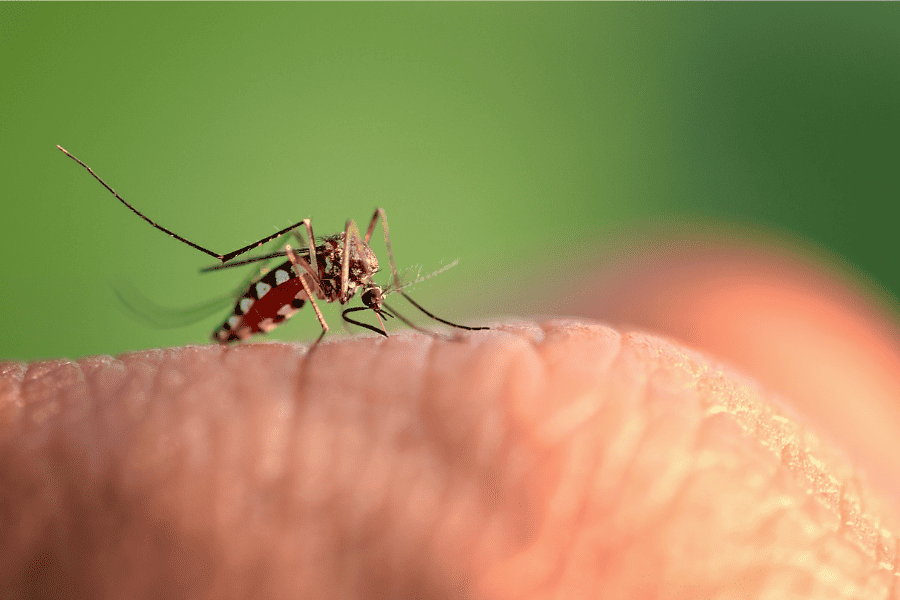
In Florida, it can seem like mosquito activity will never end. With our tropical, humid weather, mosquitoes thrive and invade our yards looking for standing water to breed. Besides being a nuisance, these pests can also pose health hazards to both humans and animals, transmitting diseases like the West Nile virus and the Zika virus. So, when does mosquito season end in South Florida?
The official mosquito season typically runs from around March through September or October. Though, since Florida is in a tropical area, mosquito season tends to be year-round, often starting as early as February and ending as late as November. While it’s not ideal to deal with mosquitoes year-round, there are certain things you can do around your home to prevent these pests from taking over your yard. Check out our do-it-yourself mosquito control steps you can take to help minimize mosquitoes around your property:
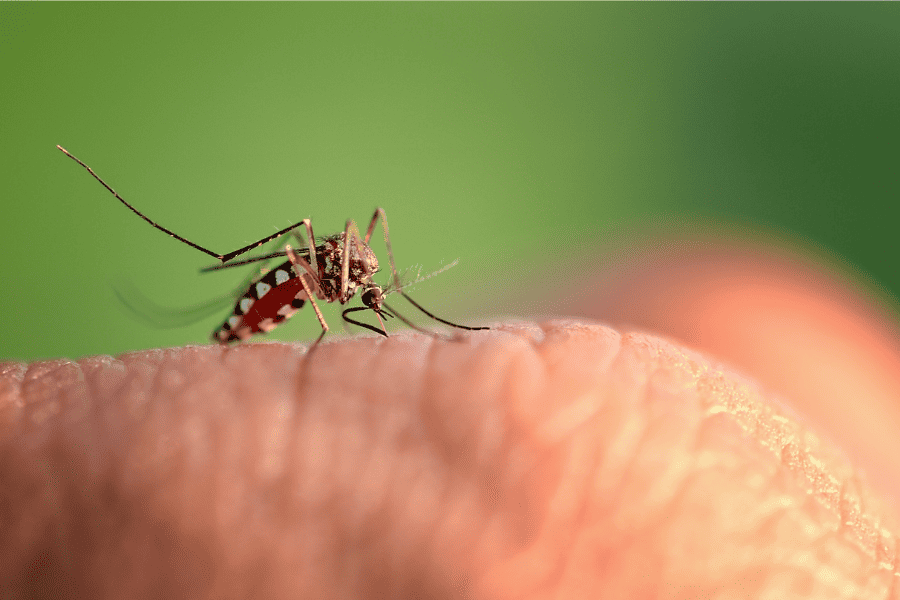
Mosquito season is still in full swing in Homestead, Florida, which means there’s still time to implement some mosquito prevention strategies to lessen the population of mosquitoes around your property. Let’s go over the best tips to get started right away.
Mosquitoes love standing water and even utilize these areas as breeding grounds. The easiest way to identify the worst of these areas is noticing clouds of mosquitoes flying above still bodies of water such as ponds and lakes. If you have any stagnant water in your garden or yard, whether it’s a bird bath, bucket, pool cover, gutters, or even some landscaping, it’s best to remove it or change out the water. Additionally, remove any mosquito eggs that have been deposited along the edges of these items by scrubbing the surfaces.
Did you know that mosquitoes, just like humans, prefer to be out of the sunshine every once in a while? They prefer to hang out in tall grass, shrubbery, bushes, and foliage. Here are some quick tips to help maintain your lawn to lessen mosquitoes:
Mosquitoes can seem like an endless battle, but you should never have to handle it alone. There are several mosquito control options you can invest in for your Homestead property. A local Florida pest control company can provide you with a mosquito reduction plan that is perfect for your needs and schedule. Request a FREE mosquito estimate today!
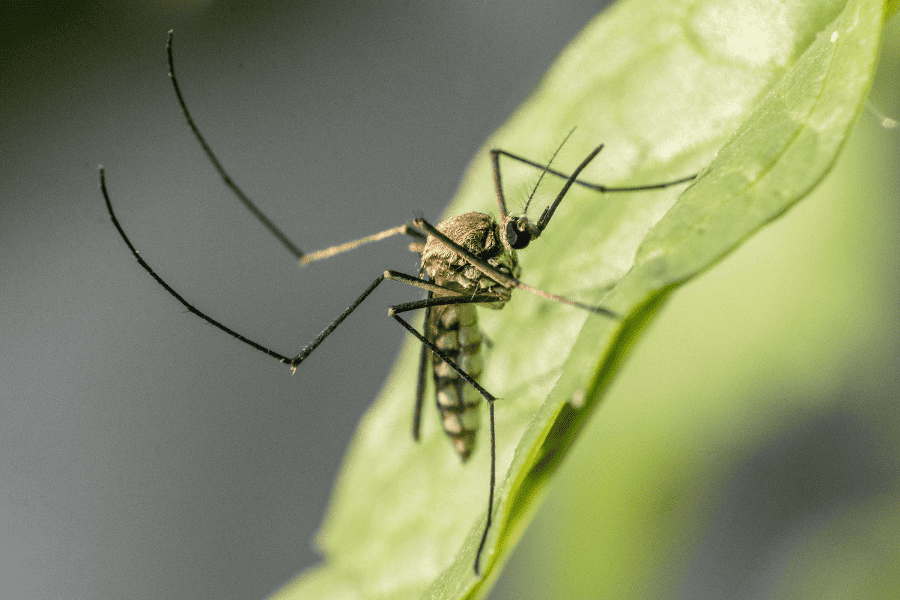
The southeast is home to states with warm climates, which means that mosquitoes are a common problem. Mosquito season typically begins in March or April and peaks around June to August. The season ends around October, once temperatures begin to drop.
A few factors can impact the sand finish of mosquito season, including the weather, the amount of rainfall, and the presence of standing water. If the weather is wet and warm, then mosquito season can start earlier and last longer.
There are many things you can do to protect yourself from mosquitoes before the season ends. These include:
If you are bitten by a mosquito, it is important to clean the bite area with soap and water. You may also want to apply over-the-counter insect bite cream to help relieve the itching and reduce the urge to scratch at it, causing further irritation.
Here are some additional tips to help you lessen the population of mosquitoes in your home or yard:
If you follow these tips and are still seeing large populations of mosquitoes, give your local mosquito control a call today for a free inspection.
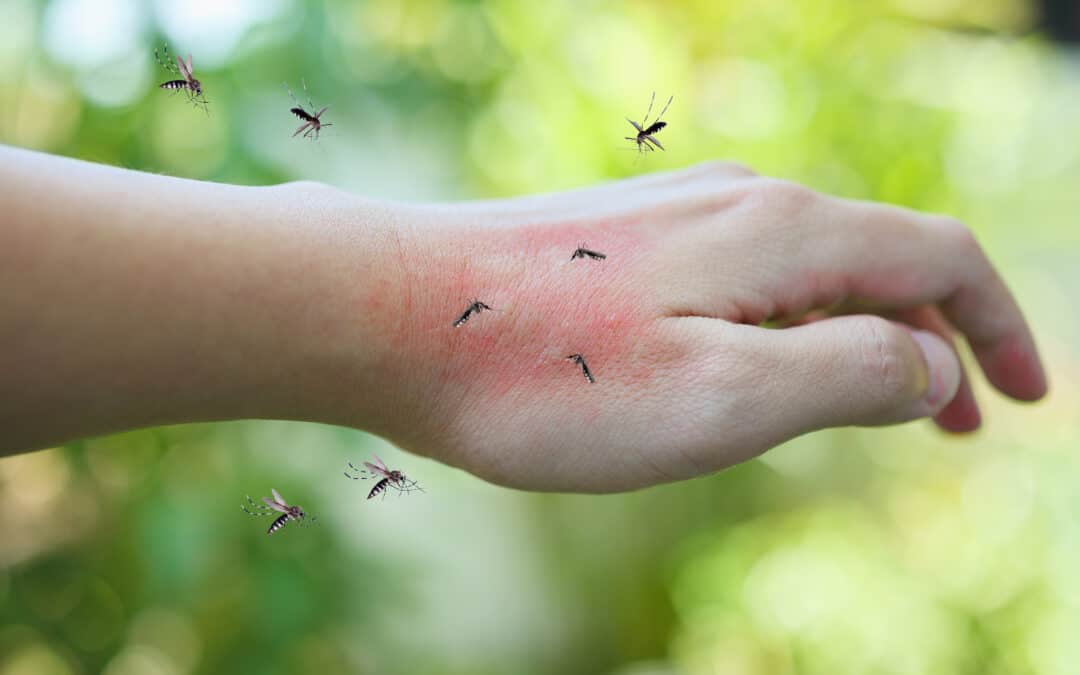
Ah, summertime! The sun is shining, the flowers are blooming, and the mosquitoes are out in full force. Yes, mosquitoes, those pesky insects that enjoy nothing more than buzzing around your head and leaving behind itchy, irritating bites. Not only are mosquito bites annoying, but they can also transmit diseases such as West Nile, Zika, and dengue fever. So, it’s important to prevent mosquito bites by placing preventative measures throughout your property to help eliminate these pests in your yard.
Mosquitoes can be a real nuisance in the summertime, but by taking these steps to prevent bites and eliminate mosquitoes in your yard, you can enjoy your time outdoors without worrying about these annoying insects. If you notice more mosquitoes around your yard than you are comfortable with, consider reaching out to your local pest control company for a free inspection.
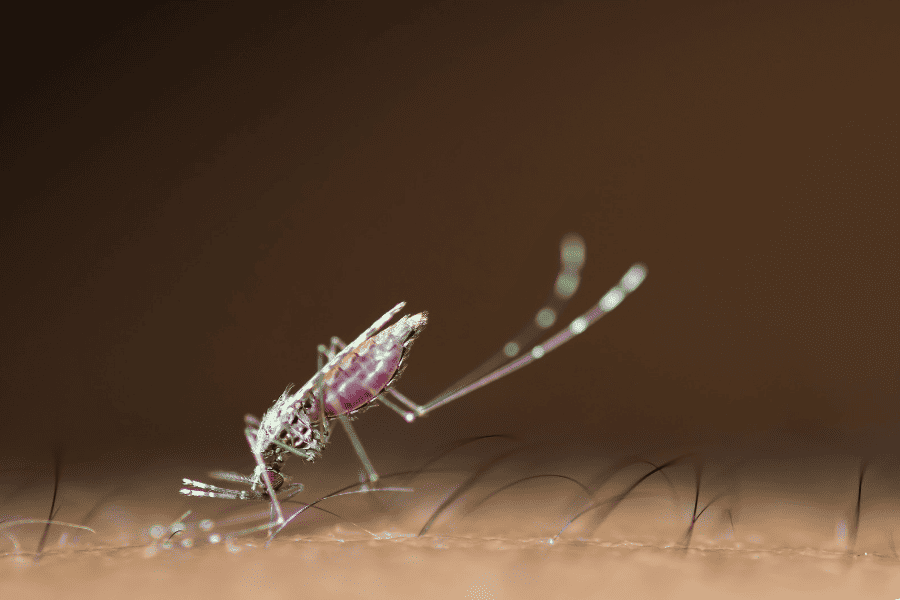
Summer is here, and so are mosquitoes. These pesky insects are known for their itchy, irritating bites, but have you ever wondered why mosquitoes bite in the first place? Let’s explore the reasons behind mosquito bites and share some tips for preventing and treating them.
Female mosquitoes are the ones that bite, and they do it to obtain the protein they need to develop their eggs. Mosquitoes are attracted to carbon dioxide and other chemicals that humans and animals emit when they breathe and produce heat and moisture. When a mosquito lands on your skin, it uses its proboscis (a long, needle-like mouthpart) to pierce your skin and suck your blood. As it feeds, it injects saliva into your skin, which can cause an allergic reaction and result in itchiness and swelling.
Preventing mosquito bites is the best way to avoid the discomfort they can cause. Here are some tips for keeping mosquitoes at bay:
If you have concerns about mosquitoes in your area, be sure to consult with your local mosquito control company for a customized mosquito prevention plan!
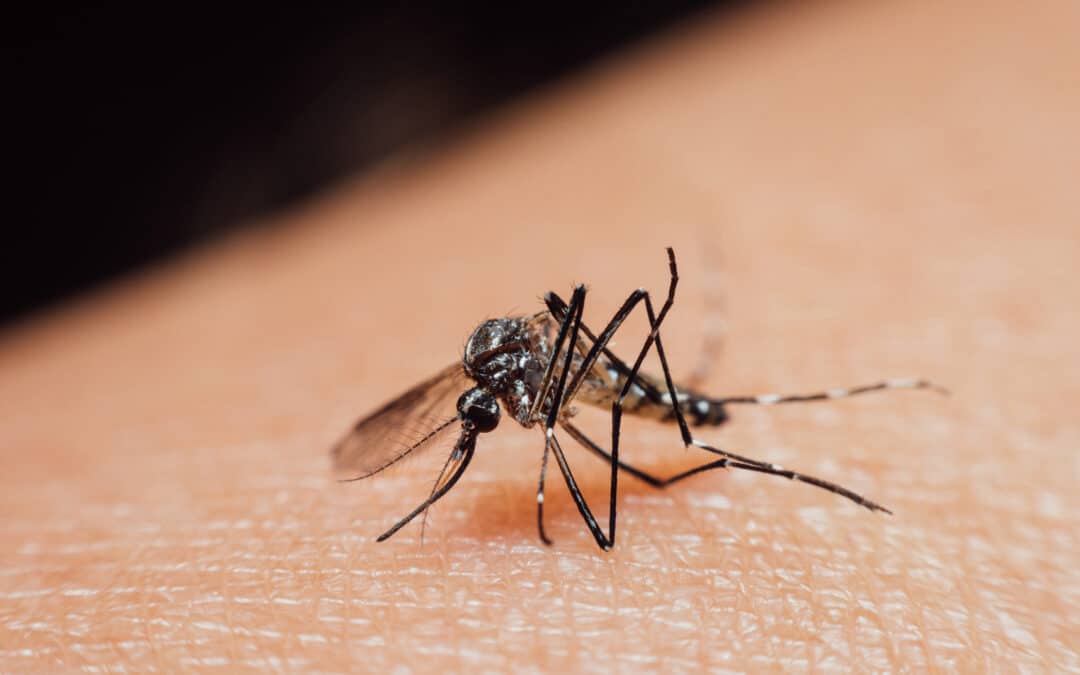
The humid, tropical weather of South Florida is the perfect climate for mosquitoes to thrive. These pesky pests are known to be a nuisance while we enjoy outdoors and to be a health risk. As summer approaches and the weather continues to get warm, it’s important for every homeowner to understand mosquito activity, the health risks they bring, and prevention tips to keep your family safe.
Mosquitoes are searching for standing water and a blood meal for survival. Standing water provides them a place to lay their eggs to allow larvae to develop, and they only need a small amount of water to do so. Likewise, these pests do feed on blood, but only female mosquitoes. Females bite and feed on humans so they can lay fertile eggs. While most mosquito species breed continuously, a female mosquito will typically search for a blood meal every two days to lay another batch of eggs.
Besides the itchy welt, there are many people who have been bitten by mosquitoes and experienced no side effects. However, these pests are known to be the cause of diseases. They will feed off a diseased host, leading to the spread of pathogens that can infect other hosts. In the United States, they are known to spread the West Nile Virus, dengue fever, and Eastern equine encephalitis.
There are several ways homeowners can deter these nuisance pests away from their yards. Check out our top do-it-yourself preventative measures to place in your yard to prevent mosquitoes from invading:
Implementing these preventative measures will always help to keep mosquitoes away, but sometimes it’s best to call a professional for extra support. These professionals will provide you with a thorough inspection, source reduction techniques, prevention methods, and treatment methods to eliminate both larvae and adult mosquitoes. Contact your local pest control company for a mosquito control quote.